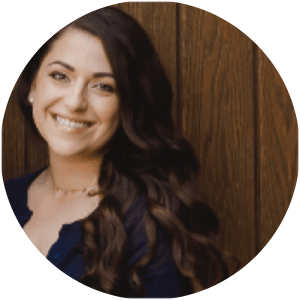What is Halal investing?
Halal simply means “permissible,” so halal investing means “permissible investing.” Some observant Muslims prefer to invest in a way that does not contradict their ethical or religious values, as laid out in Sharia Law.
Halal investing ethics include:
- No receiving interest: You cannot receive interest from fixed-income investments and you also can’t invest in a business whose main profit comes from interest, such as a bank.
- No highly speculative stocks: This rules out buying stocks that are highly leveraged, day trading, short-selling, options, futures and other complex and risky investment techniques that could be considered gambling.
- Sharing in profit and loss: Investors cannot simply lend money to a business (like with bonds); they must also be a part-owner and exposed to business risks (as is the case with stocks).
- Cannot profit off activities forbidden by Sharia Law: This includes companies whose core business include alcohol, tobacco, gambling, pork, pornography, and weapons.
The principles are subject to nuanced interpretation. Not all Islamic scholars agree on the specifics, making it difficult to construct a DIY halal portfolio. Instead, many Muslims rely on large, independent organizations advised by Islamic scholars who review companies and investments to ensure they are in line with Sharia.
The pros and cons of Halal investing
Pros
- Can tilt a portfolio in favour of growth, which is good for young, buy-and-hold investors
- Naturally avoids high risk investments
- Plenty of blue-chip companies to choose from
- Socially-responsible investing
- More and more options every year
Cons
- Difficult to find good fixed-income investments
- Hard to invest in real estate
- Investors may simply avoid investing and keep their funds in cash
- Some of the best blue-chip companies on the TSX are heavily interest-based so investors must depend more on American stock exchanges
- Not environmentally conscious (halal permits investing in fossil fuel companies, for example)
Why Halal investing isn’t the easiest in Canada
The difficulty is that these restrictions eliminate so many common Canadian investments. The following would be considered haram, or “forbidden” to those who seek to be Sharia-compliant:
- GICs
- Bonds
- Options and futures
- Preferred shares
- Big Five bank stocks
- Mortgage funds
- Cannabis stocks
- Stocks on the TSX VentureExchange
As you can see, both the very low-risk investments and the highest-risk investments are not eligible for consideration.
Is Halal investing a risky business?
Halal investing is actually inherently conservative. Even though most halal investors are likely to over-depend on equities, the equities that they are able to invest in have to have low-levels of debt. Almost all mainstream, liquid investments will likely be shares from large, stable, publicly-traded companies. They’re disallowed from engaging in complex investing techniques that most people don’t understand anyway, like options, which slashes a lot of the risk right off the top.
Ironically, it can actually be more risky for investors to avoid investing in equities at all and simply keep the majority of funds in cash. That’s because you’re losing purchasing power every year due to inflation.
Therefore, both lower and higher risk investors must be careful in constructing a halal portfolio. Lower risk investors to make sure it has enough growth potential, and higher risk investors to make sure that it can withstand a shake-up in the equity market.
Experts typically recommend you diversify a portfolio not only within asset classes but also across asset classes. That means if you hold stocks you should hold stocks in different companies, industries, and countries and also that you should invest, at least a little, in fixed-income, real estate and precious metals. Why? Because asset classes don’t usually correlate. If stocks plunge, for example, gold may skyrocket. Or if real estate bottoms out, bonds may jump. So by spreading your money out, you’re more likely to limit losses.
The weighting of each asset class depends on your risk tolerance and age. Someone younger could hold almost entirely equities, for example, whereas someone closer to retirement would hold more fixed-income assets, both to lower the risk and replace some income. Your personal comfort is also essential. Someone younger may be scared of losing money and simply want to safeguard the original investment and someone older with a steady pension may enjoy continuing getting growth to fund travel.
It’s perfectly acceptable for young, medium to high-risk investors to have a portfolio over 90% equity-based, but those who are nearing retirement, or who are lower risk, will typically prefer a portfolio with 50% or less of stocks.
Basically, it’s the lowest risk investors of any age that will have the hardest time because halal investors are essentially shut out of conventional fixed-income products.
There are a few solutions that include allowable fixed income products, like Sukuk bonds, real estate partnerships or a focus on more high-dividend paying stocks.
Medium-risk investors tend to be the best suited for a typical, equity-based halal portfolio.
Where to find Canadian Halal investments
Despite the restrictions, there are still plenty of options to start investing in funds, stocks, ETFs, and other products that align with Halal and Sharia Law.
Wealthsimple Halal Investing Fund
Wealthsimple introduced a simple and low-cost way for any halal investor to grow their money. This is probably the most exciting product to hit the market in decades for halal investors. It cuts down barriers, enabling anyone to purchase a diversified portfolio of stocks without having to transfer money into USD and without having to do any research themselves. You can even hold the investment inside a TFSA or RRSP.
Unlike other Wealthsimple automated portfolios, there are no ETFs – just 50 global stocks. All companies are screened by a third-party committee of Sharia scholars to ensure they are compliant.
They charge a reasonable fee of 0.5% for the first $100,00 invested and 0.4% for over $100,000. The only investor it may not be suitable for is extremely low-risk investors, as there’s always a higher risk with pure equity play.
Stock-picking compliant companies
Halal investors also have the option of simply opening a brokerage account and picking stocks themselves. The difficulty is they will have to screen stocks according to the following rules:
- No more than 5% of the company’s revenue can come from haram sources
- Must have less than 33% total debt compared to their market capitalization in the last year
- Must have more than 45% accounts receivable as compared to their total assets in the last year
As you can see, it takes a lot of time, energy and knowledge to do this yourself. One way to get around this is to simply copy the Wealthsimple stock list and purchase them all yourself. You can also use the Dow Jones Islamic Market Titans 100 Index.
Compliant stocks include household names like:
- Canadian National Railway
- BP
- Intel
- Johnson & Johnson
- Pfizer
- Exxon Mobil
- Suncor
- Apple
- Microsoft
- Nike
**Sukuk investments: Like bonds, but Halal
For more conservative investors there is always the option to invest in a Sukuk – essentially an Islamic bond. Similar to bonds, they reach maturity, are rated by major credit agencies, and payout regular income. Unlike bonds, however, the investor is not lending money and receiving interest income. Instead, the investor is purchasing a part-ownership in a project and receiving a distribution from the profit. They’re popular in Asia and the Middle East but are harder to find in Canada. You’d have to see a specialized financial planner at a bank or an investment firm to purchase these. Another option is buying a Sukuk ETF like the SPSK Dow Jones Global Sukuk ETF. It trades on Nasdaq so you can buy it at your regular brokerage like any other USD ETF.
Halal ETFs or mutual funds
Investors can also purchase a halal ETF or mutual funds and hold it in their RRSP or TFSA. Mutual funds come with extremely high fees in Canada, which can really eat into your returns. One of the most popular halal mutual funds is the Global Iman Fund. Unfortunately, it has an excessively high management fee of 2.80% – especially when it just uses the Dow Jones Islamic Market Titans 100 Index as a benchmark. To save on fees you can easily replicate this mutual fund by purchasing the top holdings in your online, discount DIY brokerage.
To save on fees with less work you can also buy a halal ETF. A popular one is the S&P 500 Sharia Industry Exclusions ETF with a fee of just 0.49%. This invests in all the permissible companies included in the S&P 500.
Purchase precious metals
Another lawful investment is gold or silver, whether it’s the precious metal itself, or an ETF that tracks the value (just make sure you’re not investing in gold or silver futures). Keeping this investment to around 5% of your portfolio can help you balance out one that is heavily in equities or cash. Here are two of the most popular ones:
Halal mortgages for investment properties in Canada
While you cannot have a conventional mortgage because it’s an interest-based debt, there are still ways to invest in real estate. You can invest in a Shariah-compliant REIT, like the Ansar Financial and Development Corporation (AFDC) which invests in properties in Alberta, or you can partner up and pay for a property in cash.
Is Halah investing just for Muslims?
Halal investing, while based on specific religious principles, is definitely not just for Muslims. Religious Christians and Mormons may also want to avoid investing in companies that contradict their values, such as companies that are in pornography or alcohol. Checking out the pre-screened stocks will also be of interest to those who have a lower to medium risk tolerance. Since these companies cannot have significant debt you’re automatically investing in established companies that are stable and more likely to turn a profit.






